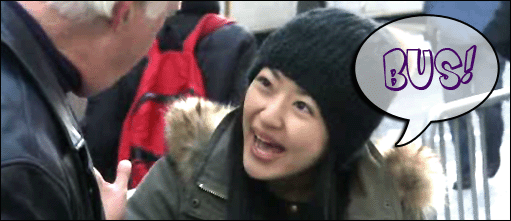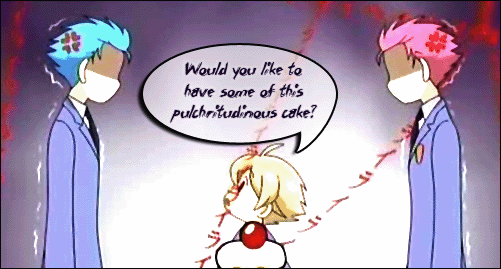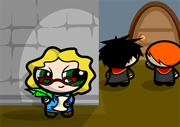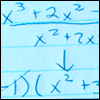Cassie's Cranky Corner
Why People Use Long and Complicated Words and What They Really Mean
Cassandra Lobiesk
Colloquial language is a daily blessing. Wait, not just a blessing, it’s the best thing since sliced bread met peanut butter (not so much the jelly because I don’t really like jelly). Without colloquialism, we’d require hours to express something that can be said in less than five seconds. Can you imagine having to correctly yell out, “You should stop walking right now! There is a bus heading your way!” In that time, the person you’re yelling at might have already been…well, let’s just say it wouldn't be a pleasant sight. Why can’t you just cry out, “STOP! BUS!” And, yes, “BUS!” is—according to my MSWord grammar-check—a fragment. How horrid.

However, even with the blessings of everyday (and rather normal) language, long and horribly complicated words have crept up in people’s conversations. Some of these words seem to have boggled the minds of the unassuming and well…others have driven people to the point of insanity as they try to figure out what the words mean when there’s no dictionary in close proximity. Perhaps smoke is now coming out of your ears or your head is about to explode due to the complex anomaly in front of you. Or, better yet, perhaps you, as a reader, would like to know how to obfuscate your friends’ senses and take them out of their comforting, colloquial mentality. If you’re the latter, kudos to you, and READ ON!

See how many eyes bulge out and how many brains go missing!
What do some of these words really mean anyway? And how would you use them in a sentence? Out of the kindness of my heart, I will actually bestow a few of these choice words to you, and whether or not you will frolic around and use them is your decision.
Note: If you honestly think I’ll use the exact dictionary definitions for these words, you’re seriously mistaken. These words are defined exactly as I said they will be defined—Cassionary style. Oh, and if you get laughed at with the pronunciations I’ve given you, tough. Not everyone’s as perfect as I am.
Algorithm |
(Pronounced al-gore-ith-em): noun – 1. step-by-step rules to solve simple or complex problems; 2. in other words, it’s just a more complicated way of saying “instructions” Nifty and obviously useful sentences: |
(Pronounced pull-kree-too-din-is): adjective – cute, sweet, adorable, charming, delectable, ambrosial, supah kawaii Nifty and obviously useful sentences: |
Pulchritudinous |
Quotidian |
(Pronounced coo-oh-tid-ee-yawn): adjective – daily, everyday, day-to-day, ordinary, not speshul but still intricate anyway Nifty and obviously useful sentences: |
(Pronounced nef-air-yosh without the ‘h’): adjective – evil, conniving, beastly, diabolical, penguin-like, Eve Shay (‘pulling an Eve’) Nifty and obviously useful sentences: |
Nefarious |
Now that you have a few new words added into your vocabulary, try using them with your friends! If you're feeling ambitious enough, you could even try incorporating all four words in a short paragraph!
Example: “Those penguins must be stopped. But what type of algorithm should we come up with that can erase these pulchritudinous yet nefarious beasts? Whatever it is, we need to think of one quickly so we can get back to our quotidian lifestyles.”
Ahh…yes, colloquial language is a blessing indeed.




